Information security is no less important than physical security. This was the topic discussed during the presentation of the project of the National Union of Journalists of Ukraine (NUJU) titled Executed Free Speech in Chernihiv. As part of the project, 102 video and text stories were prepared about journalists who suffered from the russian invaders, were captured, experienced psychological and physical pressure, became displaced people, and lost their jobs.
“The National Union of Journalists of Ukraine calls for the punishment of russian war criminals, including those for crimes against journalists and the media,” said Sergiy Tomilenko, the President of the NUJU, speaking at the presentation. “Among the more than a hundred stories of journalists that we have collected, there are also stories of our colleagues from Chernihiv Region.”
The collected testimonies of media persons were included in the final report, which has just been published. Sergiy Tomilenko emphasized that these materials were also transferred to the international initiative titled Tribunal For Putin. They have been translated into English and will be handed over to international human rights organizations, as well as to the future international court against the Putin regime.
“At the same time, we see that journalists stand in defense of their profession and almost never collaborate with the occupiers. And now, in the temporarily occupied territories, the russians have a shortage of local propagandists, so they are forced to import “specialists” from Moscow and Saint Petersburg,” added Sergiy Tomilenko.
Unfortunately, journalists’ protection of their professional honor and dignity, freedom, and independence of Ukraine come at a high price. The President of the NUJU reminded that at least 72 Ukrainian media workers are known to have been killed since the start of the full-scale war, many journalists were injured, and hundreds were forced to leave their native places.
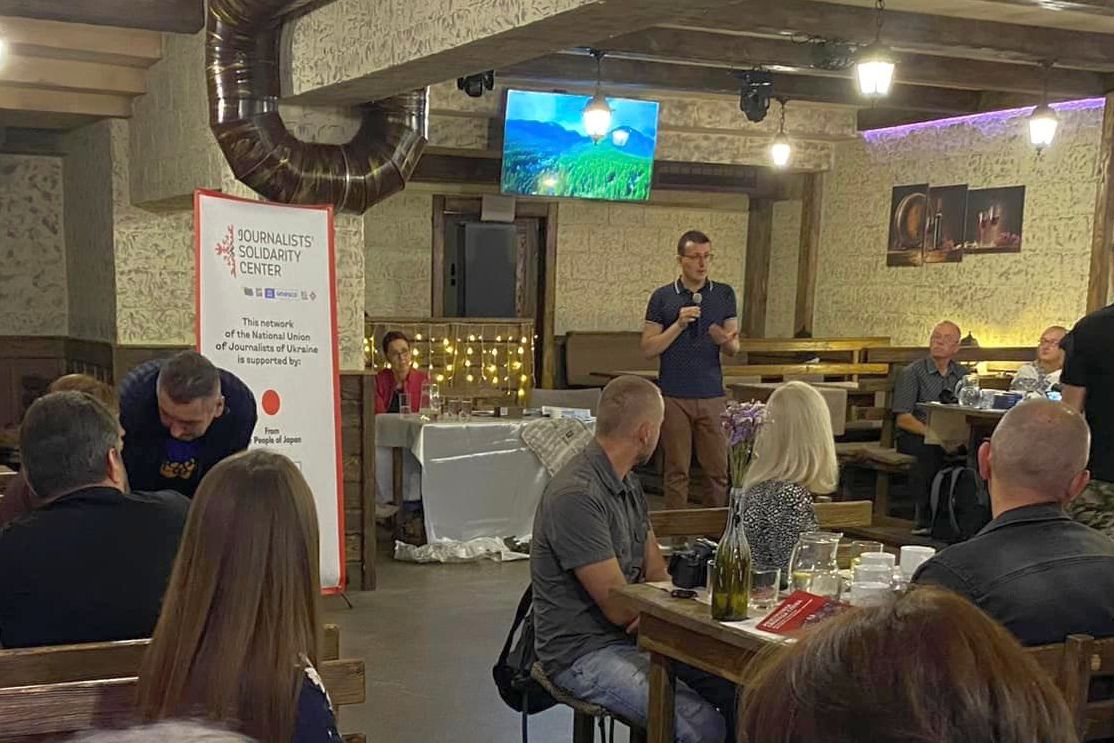
“Our project is the intention to record the enemy’s crimes. We want to bring the day of Victory and the time of punishing the occupiers closer,” Sergiy Tomilenko stressed. “We are very grateful for the support of the international community and foreign colleagues.”
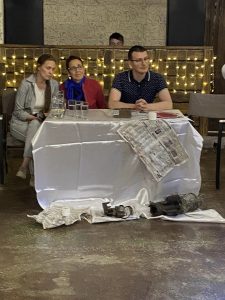 Italian journalist, deputy head of the Lombardy Union of Journalists, and member of the executive committee of the European Federation of Journalists (EFJ), Anna Del Freo, who took part in the presentation, expressed full solidarity with Ukrainian journalists and conveyed the most sincere words of support from colleagues from the EFJ and its President, Maja Sever. Anna Del Freo emphasized that she was incredibly impressed by the courage of her Ukrainian colleagues and their dedication to their profession. She promised to encourage the implementation of international support programs for journalists and media in Ukraine on all international platforms.
Italian journalist, deputy head of the Lombardy Union of Journalists, and member of the executive committee of the European Federation of Journalists (EFJ), Anna Del Freo, who took part in the presentation, expressed full solidarity with Ukrainian journalists and conveyed the most sincere words of support from colleagues from the EFJ and its President, Maja Sever. Anna Del Freo emphasized that she was incredibly impressed by the courage of her Ukrainian colleagues and their dedication to their profession. She promised to encourage the implementation of international support programs for journalists and media in Ukraine on all international platforms.
New evidence about the dangers of journalists’ work in Ukraine – from Chernihiv media workers.
Journalist Liudmyla Parkhomenko spoke about the terrible 37 days she had to spend under the russian occupation.
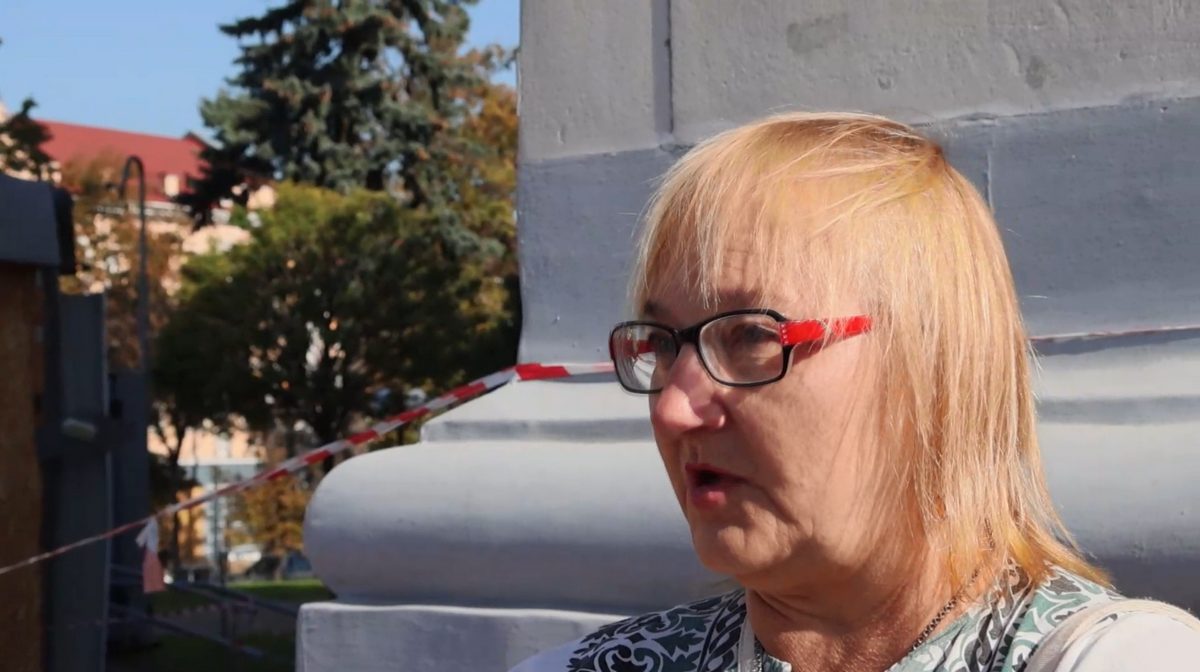
“I live near Chernihiv. The city was under siege, and russian troops came to us. It was terrible. Shooting, explosions, people killed, houses burned, the occupiers drove their tanks… But we held on well. 13 people gathered in the neighboring house and decided to live together in this terrible time. A sniper killed a person in this house. And it was not possible to bury her… But later, they managed to bury that person in their barn… And there were a lot of situations like that.”
Another journalist, Inessa Ftomova, recalls the terrible events of August 19, when the russians fired a rocket at the Chernihiv Drama Theater and killed seven people inside and on the square in front of it. The journalist’s apartment is located nearby.
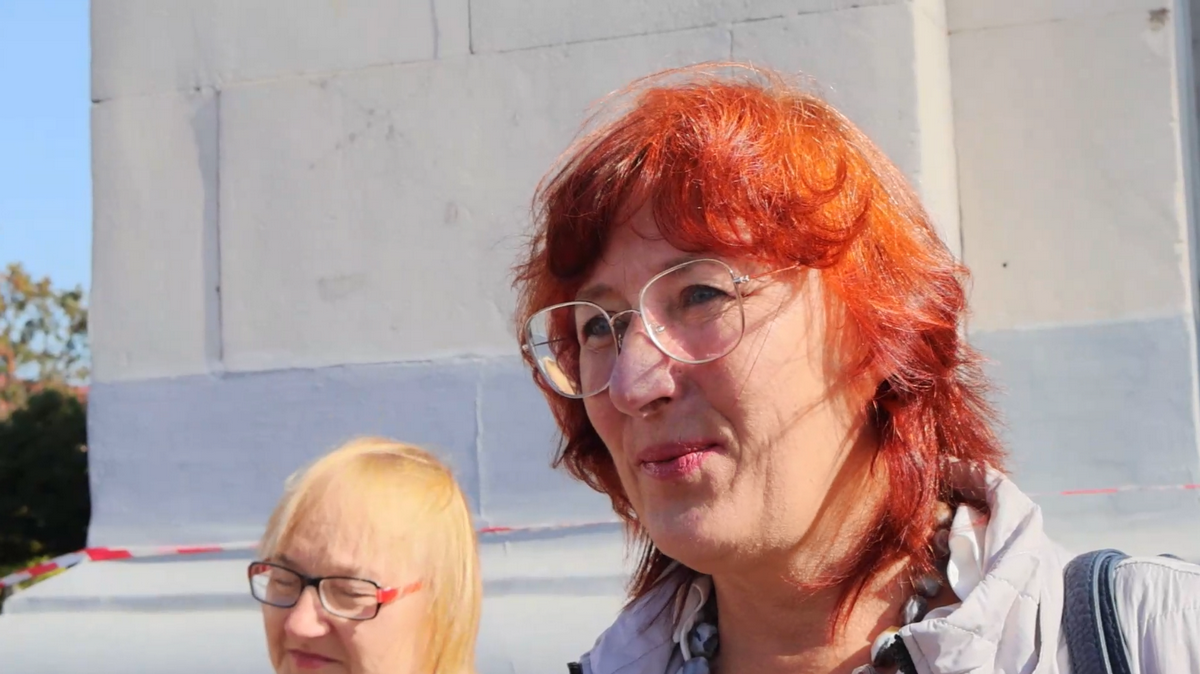
“A ball of fire flew past our window, and at the same moment, there was an explosion. I was cooking lunch in the kitchen, and in one moment, I realized that I was standing with a spoon over a pan full of broken window glass. And for a while, she couldn’t understand what happened… We can’t forget it; it’s with us forever. We walk, smile, and drink coffee as if everything is normal, but the fear does not go anywhere. There is also material damage: the apartment is damaged, now we are repairing it little by little. At the same time, we thank God that we are alive!”
Inessa Ftomova‘s son, journalist Arsen Chepurnyi, was in the theater at the time of the shelling, where he was preparing a report on the event that was taking place there. He was wounded in the hand and was treated for about a month.
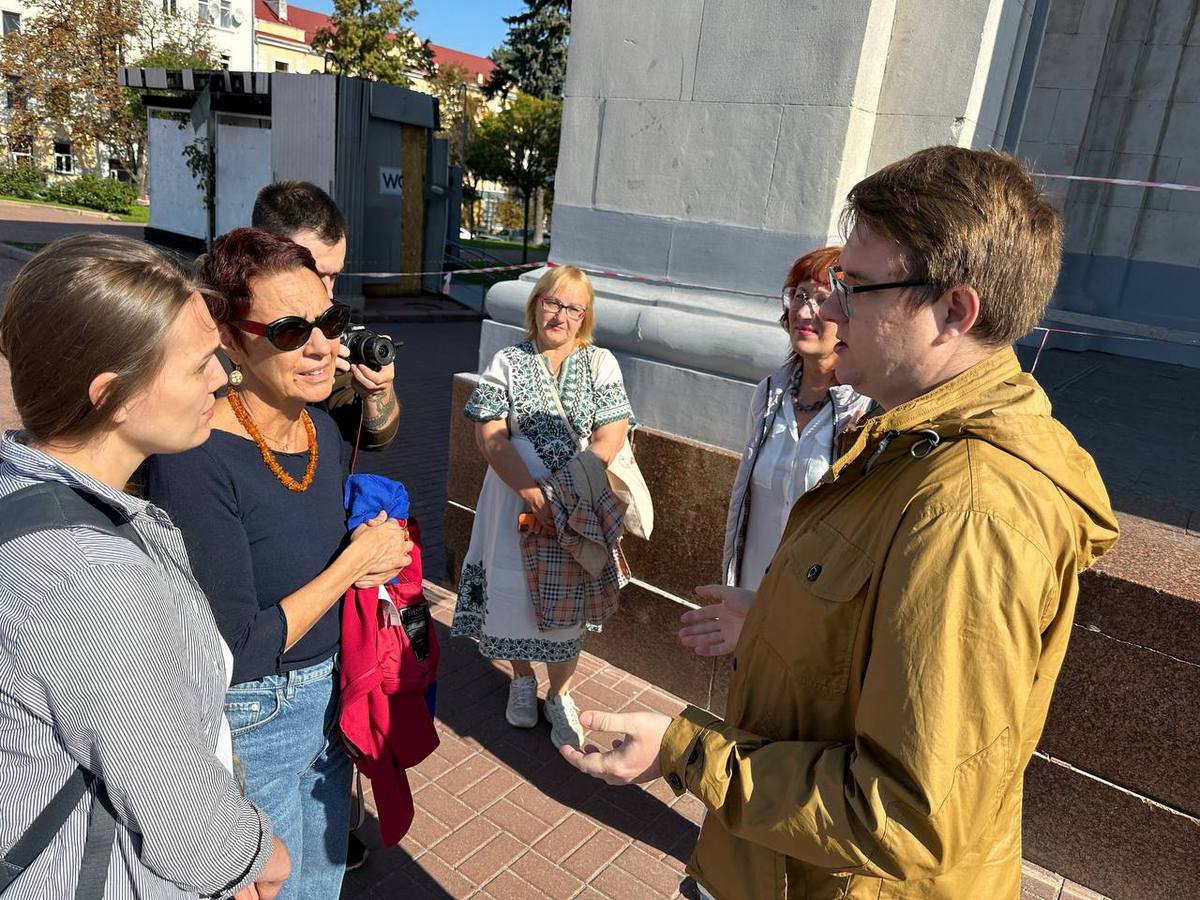
“I survived the blockade of Chernihiv. I was under fire, so I got used to shelling. My first reaction was to fall on the floor and cover my head. Then I looked where my cameraman was because we were together. I didn’t even immediately realize that I was injured. The fear came about an hour later when the air alert was turned off. Only then did I realize that I was a hair’s breadth away from death,” said Arsen.
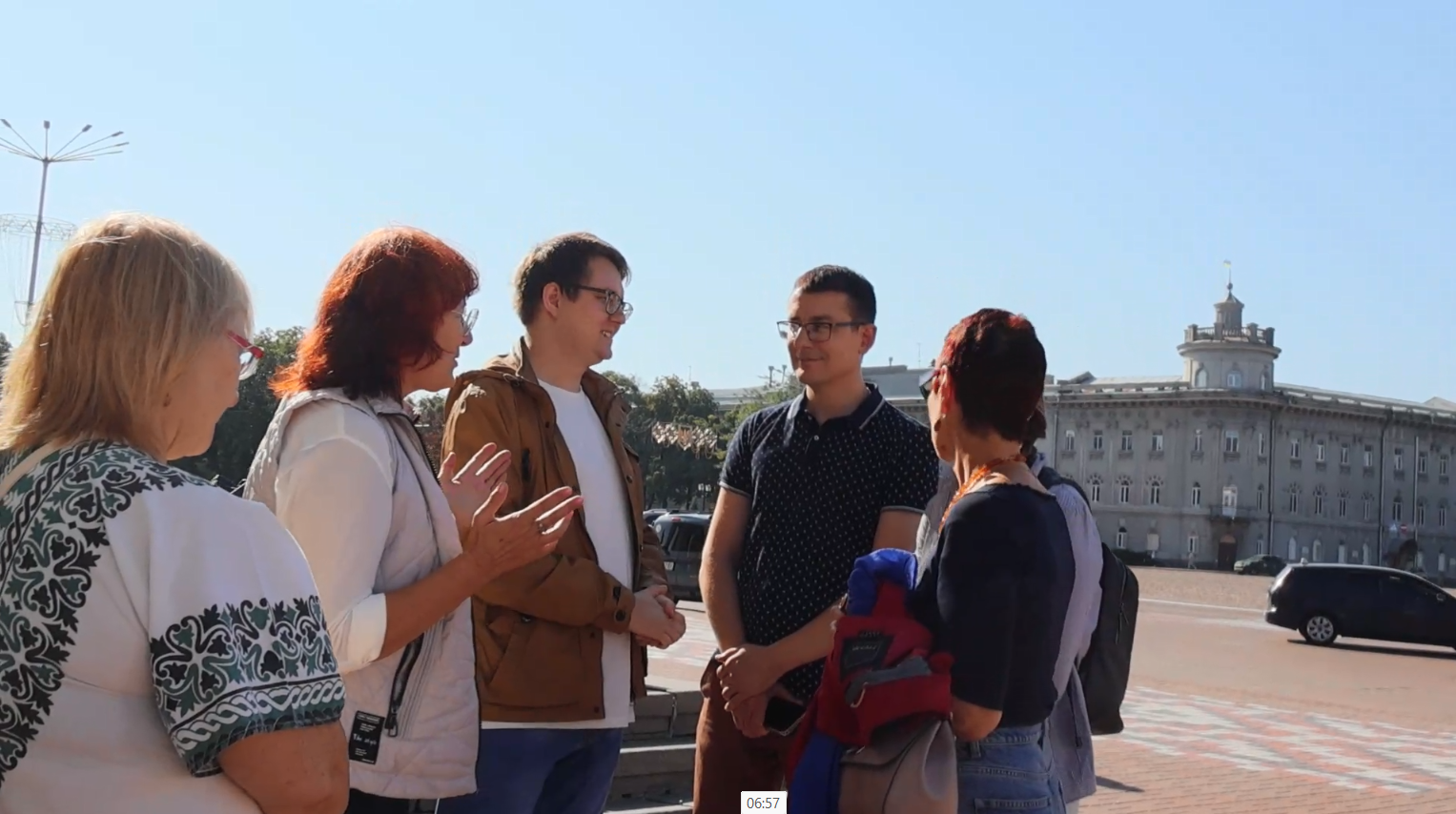
The head of the Chernihiv regional organization of the NUJU, Oleksandr Nazarenko, NUJU‘s executive secretary, Olha Cherniakova, editors, and journalists of the Chernihiv Region took a sincere and professional part in the discussion. In addition to discussing the immediate topic of the meeting, its participants exchanged opinions on the sustainability of local media, work with international donors, and the devastating consequences of the radical reform of the Ukrposhta state-run postal service for the newspaper industry and Ukrainian readers.
NUJU Information Service

 THE NATIONAL UNION OF
JOURNALISTS OF UKRAINE
THE NATIONAL UNION OF
JOURNALISTS OF UKRAINE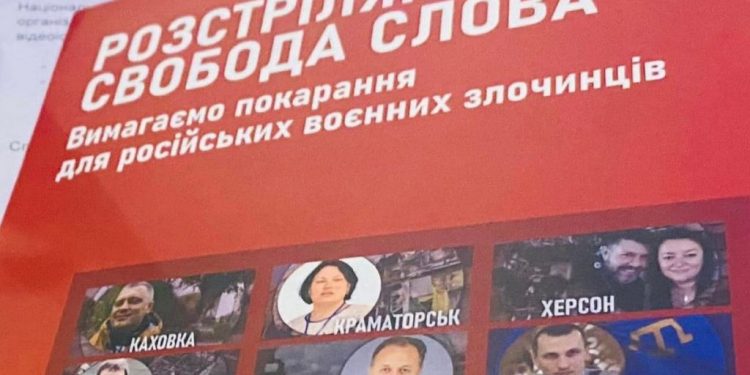
















Discussion about this post